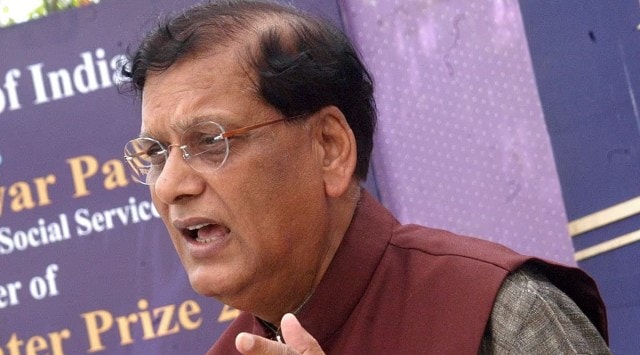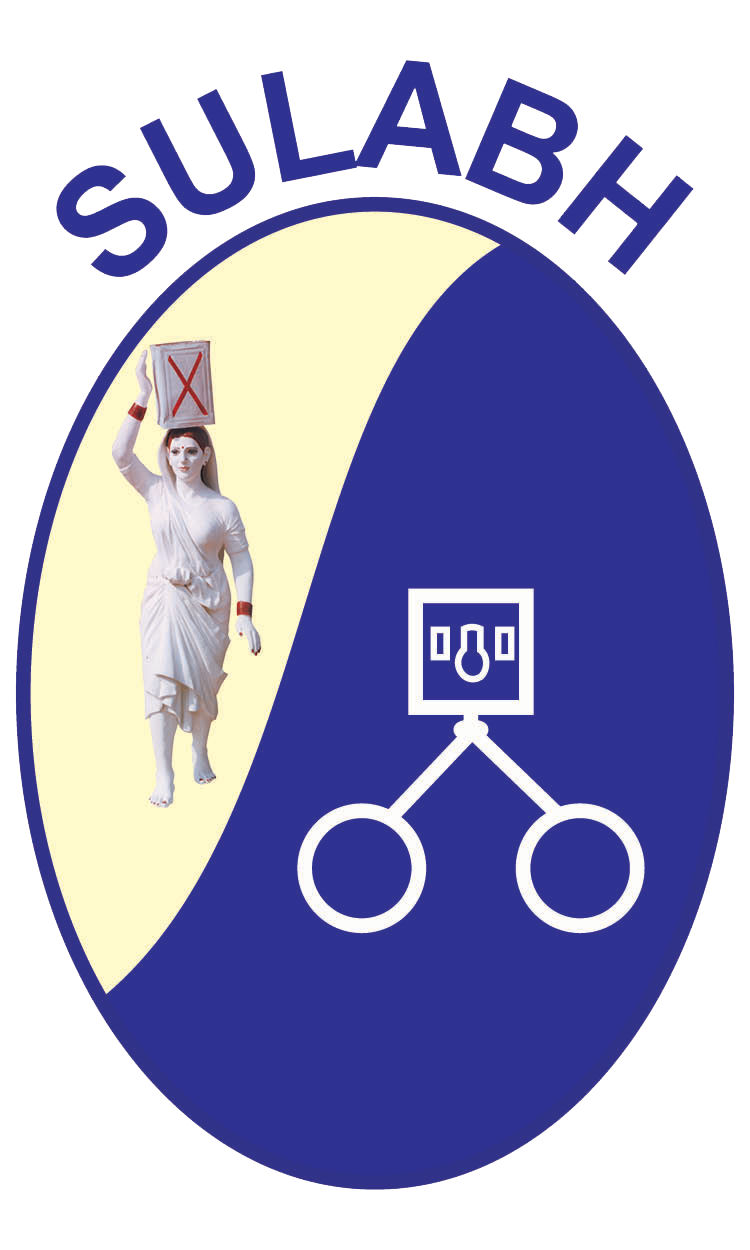His First Two Toilets Built With Rs 500 From Arrah Municipal Official To 10,000-Plus Public Toilets Across The Country.
Written by Harikishan Sharma

Bindeshwar Pathak
Bindeshwar Pathak, noted social reformer and founder of Sulabh International Social Service Organisation who championed the cause of sanitation by building over 10,000 public toilets across the country, died on Tuesday. He was 80. Pathak is survived by wife Amola, and two daughters and a son.
“He complained of uneasiness amid Independence Day celebrations at Sulabh complex at Palam-Dabri Road, New Delhi. He was taken to AIIMS,” the Sulabh International said in a statement.
He died of cardiac arrest, the statement said.
Born at Rampur Baghel village in Bihar’s Vaishali district, Pathak started the Sulabh movement in 1970 and dedicated his life to eradicating manual scavenging and spreading awareness on sanitation. He was credited with designing and popularising the low-cost twin-pit flush toilets, widely constructed under the government’s Swachh Bharat Mission.
Pathak built his first public toilet in Arrah, Bihar, with the help of a municipality official who had given him Rs 500 to construct two toilets for demonstration in the municipality premises in 1973. After the success of this initiative, the authorities sanctioned a project for its wider implementation.
In 1974, the first Sulabh public toilet — with 48 seats, 20 bathrooms, urinals and washbasins — was thrown open to the public in Patna.
After completing schooling at his village, Pathak graduated in Sociology from BN College, Patna. He wanted to study criminology from Sagar University in Madhya Pradesh, but before that he joined Gandhi Centenary Committee in Patna as a volunteer. The Committee sent him to work for restoration of human rights and dignity of people from Dalit community in Bihar’s Bettiah in Bihar. From there, he took a resolve to start a mission to eradicate manual scavenging and open defecation — a common phenomenon at the time.
In 1974, the Bihar government sent a circular to all local bodies to take Sulabh’s help to convert bucket toilets into two-pit pour-flush toilets, and by 1980, 25,000 people were using Sulabh public facilities in Patna alone.
Pathak’s efforts was soon featured in the international press.
In 1991, he was awarded the Padma Bhushan for his work on liberating and rehabilitating manual scavengers and received the International St Francis Prize for Environment the following year.
In 2009, Pathak won the Stockholm Water Prize, conferred by the Royal Swedish Academy of Sciences. In 2012, he undertook a philanthropic mission at the behest of the Supreme Court to work towards welfare of widows of Vrindavan. He started by giving a monthly stipend of Rs 2,000 to each widow.
In 2016, Sulabh was awarded the Gandhi Peace Prize for its contribution to the government’s flagship Swachh Bharat mission.
Expressing condolences, President Droupadi Murmu said Pathak had taken a “revolutionary” initiative in the field of cleanliness. “He was honored with many awards, including Padma Bhushan. I express my condolences to his family and members of Sulabh International,” she tweeted.
Vice President Jagdeep Dhankhar posted on a social media site: “Deeply anguished…. His relentless dedication to eradicating manual scavenging and advancing sanitation has uplifted countless lives. My thoughts and prayers are with his bereaved family…”
Prime Minister Narendra Modi called Pathak’s death a profound loss for the nation. Modi tweeted, “He was a visionary who worked extensively for societal progress and empowering the downtrodden. Bindeshwar Ji made it his mission to build a cleaner India. He provided monumental support to the Swachh Bharat Mission. During our various conversations, his passion towards Swachhata was always visible. His work will continue to inspire…”
Rural Development Minister Giriraj Singh remembered Pathak as a “close friend” who brought a “revolution in cleanliness” in India. “His work will inspire us all and his memory will always be in our hearts,” Singh tweeted.
Stating that he “was personally acquainted with Pathak”, former Union minister P Chidambaram said, “I pay tribute to his farsightedness and missionary work in the field of sanitation.” The senior Congress leader tweeted, “The passing away of Bindeshwar Pathak is a huge setback to the movement for a Clean and ODF [open defecation-free] India and, along with thousands of admirers, I mourn his loss. Undoubtedly, Pathak was the pioneer of the Clean India movement who toiled all his life to introduce sanitation to the people. He was an innovator, who introduced novel and cost-effective techniques into household latrines and sanitation. His models were adopted all over the world.”
His party colleague Jairam Ramesh said the “tireless crusader” made Sulabh a household name. He tweeted, “I spent much time with him when the Nirmal Bharat Abhiyan was being designed in 2011…. Sulabh’s International Toilet Museum in New Delhi is a most unusual and educative place.”
Madan Jha, who works as an adviser at Sulabh International, said Pathak’s death is a big loss to society and the organisation. “When Prime Minister Narendra Modi announced the Swachh Bharat Mission on August 15, 2014, our phones were ringing continuously — everyone wanted to speak with Dr Pathak,” he said. Today, phones are ringing again as Dr Pathak has left us…”
© The Indian Express (P) Ltd






